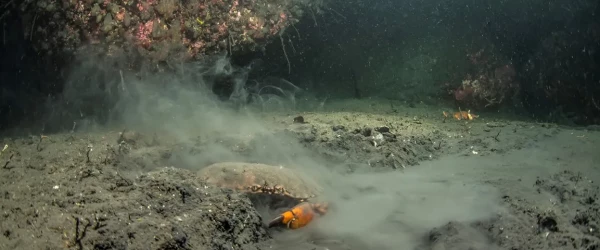In Papua New Guinea, the election campaign is heating up ahead of national general elections in July. Part of the PNG government’s messaging centres on its commitment to the Wafi Golpu Joint Venture Project – an immense proposed copper and gold mine in the Morobe province. As with the Frieda River mine, there are serious concerns about how to manage the huge volume of toxic mine waste.
The communities in Morobe who are concerned about Wafi Golpu and communities in the Sepik are facing the same type of threat: the waste from an enormous copper and gold mine.
We believe that the outcome of the negotiations over Wafi Golpu will have implications for the Frieda River mine and on the Sepik.
This is why we wanted to let you know what is happening in Morobe, and what we and our partners are doing.
Wafi Golpu’s proponents, Australian companies Newcrest Mining Limited and Harmony Gold (Australia), want to dump millions of tonnes of hazardous mining waste directly into the ocean in the Huon Gulf over the next 28 years. The method is known as ‘deep sea tailings placement’ or DSTP.
More than 400,000 people in the Huon Gulf Peninsula depend on the ocean for their livelihood and everyday life. Because people can catch fish, they can make an income, send their children to school, and afford basic supplies such as flour and rice. If Wafi Golpu’s current plans to dump its waste go ahead, it could devastate the Huon Gulf forever.
If the Wafi Golpu mine is approved, with DSTP as the tailings disposal method, this could open the door for the same method to be used for the Frieda River mine.
There are no laws regulating DSTP in Papua New Guinea.
After 40 years of mining ventures destroying Papua New Guinean communities and their environments, communities are fighting back. Our partner, the Evangelical Lutheran Church of Papua New Guinea (ELCPNG), has been working with communities across Morobe province, informing them of their rights, hosting workshops and advocating against Wafi Golpu’s DSTP.
On 4 April, a political rally was held in the provincial capital of Morobe, Lae City, intending to celebrate Wafi-Golpu Joint Venture. However, leaders of coastal communities attended, wearing green t-shirts, holding banners that stated ‘No consent! No DSTP!’, shouting their opposition to DSTP, and young people rode bicycles 60km from the north of Lae to circle the rally. The majority of the message was subsequently devoted to addressing the communities’ stand.
One of our partners within the Church, Bishop Dr. Jack Urame says:
Communities do not agree with the dumping of waste into the sea, because it is their livelihood. We are concerned about the future – for our children, and our grandchildren. As the Church, we stand with our parishioners. We believe that their concerns are valid and must be heard before approval of this project can be granted.
Dumping mining waste into the ocean in Australia would not be permitted for one day, let alone 28 years.
It is time that the human rights and environment of our closest neighbours is respected by Australian companies – and not treated as a lawless dumping ground.
Jubilee Australia have formed a coalition with the Evangelical Lutheran Church of Papua New Guinea, Center for Environmental Law and Community Rights Inc (CELCOR) and Australian NGO, the Mineral Policy Institute, to raise concerns about the lack of free, prior and informed consent by coastal communities to Wafi-Golpu’s dumping plans.
In April, the coalition wrote an open letter to the National Government, describing our concerns with Wafi Golpu’s DSTP, with a subsequent article in Loop PNG and in print in the Post-Courier.
The battle to Save the Sepik is now part of a broader movement in PNG seeking to inform and equip communities with knowledge and information about their rights.
By Emmanuel Peni (Project Sepik) and Luke Fletcher (Jubilee Australia)
Photo: There are few signs of life on the bottom of Jøssingfjord in southern Norway, 35 years after dumping ceased at the Tellnes titanium mine. Scientists believe it may never recover. Credit: Erling Svensen
